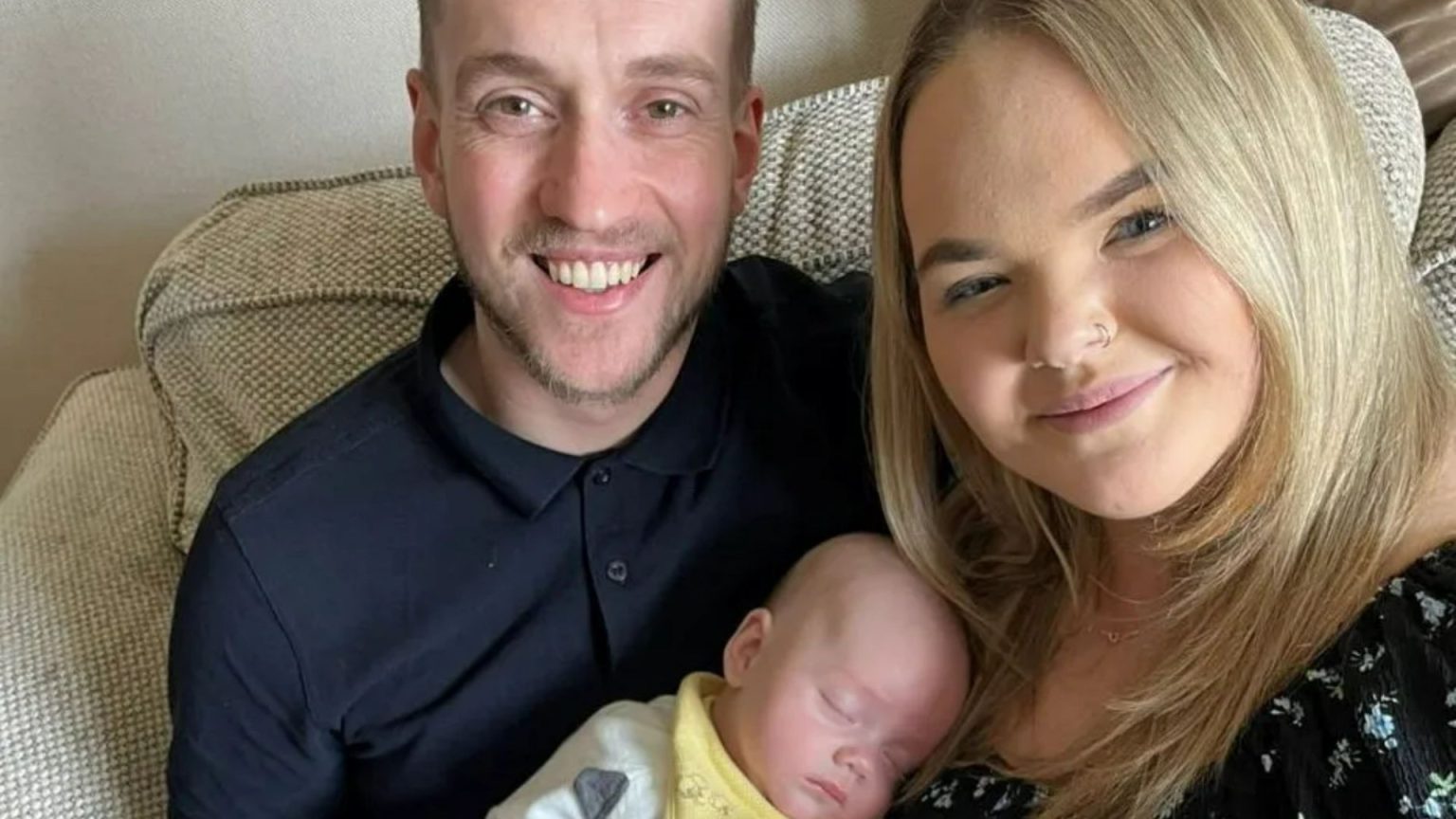Bethany Wright’s journey into motherhood took a devastating turn when what she initially suspected to be a pregnancy complication turned out to be a life-altering diagnosis. At 34 weeks pregnant, suffering from worsening headaches, Bethany, a 26-year-old community nurse from Glasgow, Scotland, sought medical attention, fearing pre-eclampsia, a condition characterized by high blood pressure during pregnancy. However, a CT scan revealed a far more sinister reality: a 6cm mass on her brain. Subsequent MRI scans confirmed the presence of a brain tumor, casting a long shadow over the joyous anticipation of her son’s arrival. Doctors informed Bethany that surgery to remove the tumor would have to wait until after she gave birth.
On March 28, 2024, Bethany welcomed her son, Alfie, into the world, a moment of immense joy tempered by the looming threat of her diagnosis. The delicate balance of navigating new motherhood while grappling with the knowledge of a brain tumor created a unique and challenging emotional landscape. The usual celebrations and milestones of early parenthood were overshadowed by the pervasive anxiety and uncertainty surrounding Bethany’s health. The focus shifted from the joys of a new baby to the anxieties of a potential shortened lifespan, stealing the precious moments that new parents typically cherish.
In August 2024, finally able to address the pressing medical issue, Bethany underwent surgery to remove the tumor. While surgeons successfully removed 85% of the mass, the remaining 15%, located precariously on her right frontal lobe, remained inaccessible. The subsequent biopsy delivered the devastating news: a grade 3 astrocytoma, a fast-growing and aggressive form of brain cancer. The diagnosis brought with it the grim prognosis of three to ten years to live, a stark contrast to the hopes and dreams she held for her future and her son’s.
The arduous journey continued as Bethany embarked on a grueling treatment regimen, enduring 33 sessions of radiotherapy followed by 12 rounds of chemotherapy. The debilitating side effects, including relentless vomiting and an inability to keep food down, compounded the challenges of caring for a newborn. The physical toll of the treatment left her depleted, struggling to perform even the simplest daily tasks, an agonizing reality for a new mother yearning to fully embrace her role. Amidst this struggle, Bethany’s partner, Cameron, and her mother, Lorraine, stepped in to provide unwavering support, allowing her to prioritize her health and fight for her life.
Faced with the devastating possibility of a shortened life, Bethany began creating a memory box for Alfie, a heart-wrenching endeavor driven by the fear of not being present to witness his milestones. The box, filled with letters, photos, and a voice recorder, serves as a tangible representation of her love and a poignant reminder of the future she may miss. The simple act of preparing this box underscores the emotional toll of her diagnosis, forcing her to confront the possibility of leaving her son behind. The joy of motherhood is constantly intertwined with the stark reality of her illness, a constant reminder of the time she may be losing.
Bethany’s story is a powerful testament to the resilience of the human spirit in the face of unimaginable adversity. It highlights the challenges of balancing the demands of new motherhood with the physical and emotional toll of a life-threatening illness. Her proactive approach to creating memories for her son underscores her unwavering love and determination to leave a lasting legacy, even in the face of uncertainty. Her journey serves as a poignant reminder of the importance of early detection and the devastating impact of brain tumors, particularly on young adults and their families.











